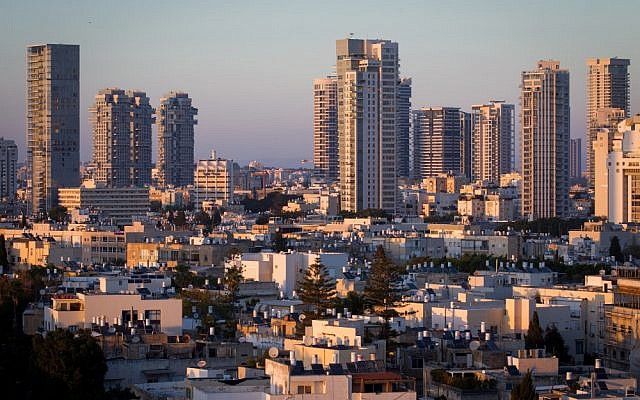Inflation higher than expected in January; housing costs keep rising
Cost of living rises 0.3% over the month, bringing the year-on-year rise of consumer price index to 5.4% — highest since 2008; home sales slow but prices remain high
The cost of living is continuing to rise in Israel, according to figures released Wednesday by the Central Bureau for Statistics.
Data showed inflation increased by 0.3 percent in January, bringing the year-on-year rise of the consumer price index to 5.4% — the highest level since 2008. Economists had expected the January figures to stand at 0.1% at most.
January’s CPI was driven by increases in the costs of home maintenance (up 1.4% year on year), healthcare (up 1%) and food (up 0.9%). The cost of clothing and shoes have fallen year on year (by 4.9%), as have fresh vegetables (down 1.9%) and costs of culture and entertainment (down 1.6%).
Despite consistent interest rate rises by the Bank of Israel in order to reign in inflation, increases in the cost of living remain above the target range, potentially leading to further interest rate hikes.
Apartment prices rose a further 0.2% from November to December in 2022, compared with an average monthly increase of 1.5% for each of the first 10 months of the year. The highest price rises were seen in Jerusalem (1.4%), while Tel Aviv recorded a slight price fall (down 0.2%).
This means that over the last year (to December 2022) the price of homes has increased by 17.1%, compared to 18.8% in November 2022. While this is a slowdown, it still presents major affordability challenges.
In the last quarter of 2022, the “average price” for a property stood at NIS 1,961,000 ($555,994). In the last quarter of 2021, the figure was NIS 1,767,000 ($500,990). In Tel Aviv over the last year, the increase was even greater — from NIS 2,642,000 ($749,074) in 2021, to NIS 3,092,000 ($876,661) in October to December 2022.
Over this time, prices have risen by just under 27% in northern Israel, 20.4% in Jerusalem and 19.9% in the center of the country.
Outside Tel Aviv, Israel’s most expensive cities in which to buy a home are Kfar Saba, Ramat Gan, Jerusalem and Bat Yam, while the highest increases have been seen in Bat Yam (39%) Bnei Brak (26%), Petach Tikva (26%), Beit Shemesh (24%) and Netanya (22%). The cheapest cities for house purchases are Beersheba, Ashkelon and Haifa.
According to a further report this week from the Finance Ministry, the number of property transactions fell by 39% year on year in December. This is the lowest level seen in Israel since 2008, when prices were impacted by the worldwide financial crisis. The volume of secondhand apartments changing hands is at its lowest level for 20 years, and contractor sales of new homes have also fallen.
But while investment purchases — by people who have more than one property — have gone down, they have decreased by less than the drop in the market as a whole, suggesting that those who can afford to buy believe that property prices overall will continue to go up.










